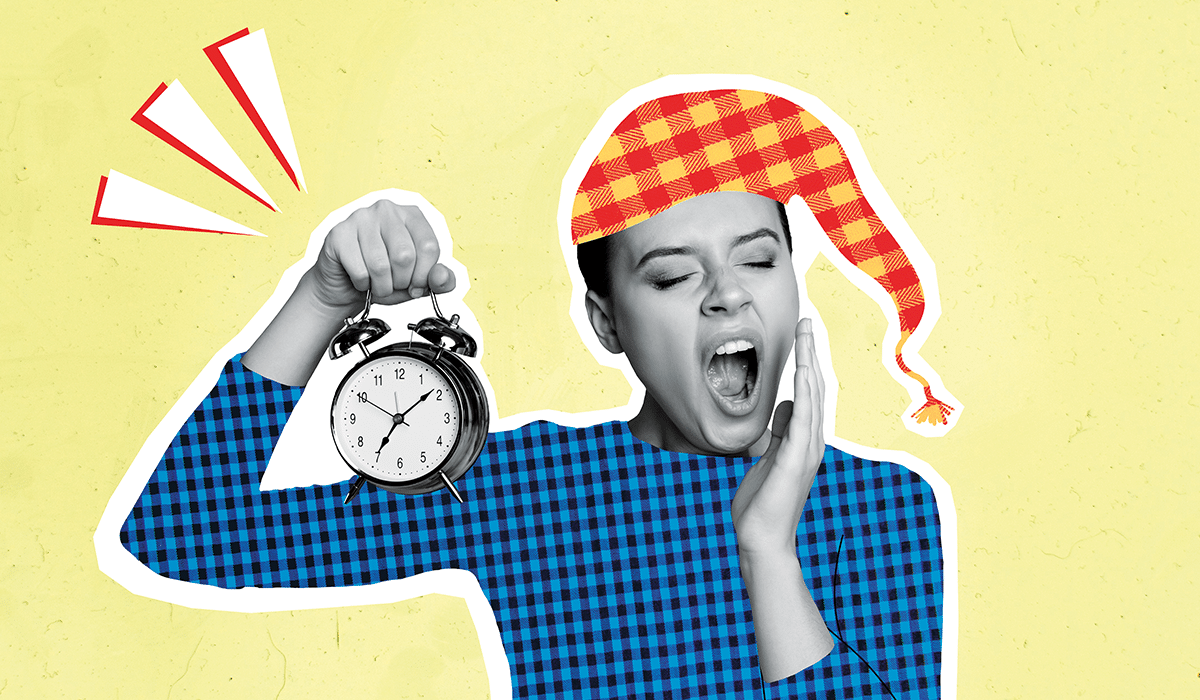From information overload to increasing time pressures, many of us are facing burnout – if we’re not there already. Stress coach Ani Wilson tells us how to take a step back.
When she returned to work after a serious burnout, Ani Wilson started to see her colleagues in a different light. She could spot the signs of their extreme stress levels a mile away – the same signs that had plagued her until an episode of bed rest forced her to stop and take stock.
With fresh insight on the perils of extreme pressure, she chose not to rejoin the grinding corporate rat race. Instead, she returned to her roots in neuroscience in a bid to help managers, leaders and executives avoid the dangers of the chronic stress cycle.
These days, Ani works as a stress mastery coach and leadership consultant, helping frazzled professionals around the world. With a focus on teaching achievable steps and evidence-based ‘brain hacks’, she shares some insights and tips for putting the brakes on the stress express.
Data overload
Despite all our knowledge on the dangers of high cortisol levels, the trend towards meditation and wellness, and the flood of wellness information online, we’re still more stressed than ever.
Ani believes it’s not just our addiction to our phones or an inability to say ‘no’ that’s the problem; our brain’s processes are simply struggling to cope with the world we now inhabit. “We all have about 80 000 thoughts every day, and 90% of those are your subconscious thoughts – like habits and emotions – which are generally the same as yesterday, so we only have about 7 000 unique thoughts a day,” Ani explains.
“In 1952, the average worker was processing about two newspapers’ worth of information per day, but if you fast forward to modern times, that number is well over 175 newspapers’ worth of data. That’s using the same number of unique thoughts – and that’s just the tip of the iceberg.”

Tired and wired
We already know that the human brain is spectacularly complex, so a ‘one size fits all’ approach to busting stress is impossible. It’s not just a matter of whether you prefer to wind down with an exercise session or a good book; Ani’s work goes deeper into the inner wirings of our grey matter.
“A high performer may have spent 20 years training their frontal lobe (the reward centre of the brain) to expect to achieve,” she says. “Their brain has become stronger in certain areas, often at the detriment of other areas. So just telling a person like that to simply chill out and go on holiday is often just putting them on a faster track to burnout.”
For the people that find a tranquil getaway impossible, Ani recommends the seemingly counter-intuitive step of taking work away on holiday – but limiting work time to one hour a day. That way, there’s still a sense of achievement, alongside the relaxation.
‘BURNOUT IS WHERE YOU GET TO THE POINT WHERE YOU BECOME MECHANICAL ABOUT EVERYTHING; YOU HAVE NO EMOTION WHATSOEVER, OTHER THAN WANTING TO CRY.’
According to Ani, the common pattern of constantly using the same parts of our brain can lead to a mental rut, or to perceiving every day to be the same.
Teaching your brain to see the wonder in small things, like a butterfly that crosses your path, is one of the ways to help ease a goal-driven mindset and encourage neural activity in areas of the grey matter that may be underutilised.
Warning signs
While everyone is affected by stress differently, and some people get to the ‘pressure overload’ point faster than others, there is a key sign of impending burnout that’s the same for almost everybody.
“Burnout is where you get to the point that you become mechanical about everything; you have no emotion whatsoever, other than wanting to cry,” Ani explains. “You just can’t turn that emotion on and you get to the stage where you’re exhausted but you can’t sleep.”
Ani points out that, for many of us, stress is a good thing. But chronic stress is when it turns bad. If the warning signs are there, the first thing she advises is to work on getting better sleep.
This is often a case of going back to the basics, such as not using devices before bed, taking a warm bath in the evening, and having tryptophan-rich foods like warm cow’s milk before hitting the pillow.
Tryptophan is an essential amino acid which helps the body make melatonin. A fear of asking for help is another hallmark of the road to burnout, and we can all agree it’s high time we put an end to the stigma.
“Most of us get to that point because we are useless at asking for help, as we think that other people will judge us,” Ani says. “We have to start teaching ourselves that we can’t do everything and be everything, and that this fear of judgement is only within ourselves. It’s not even about being vulnerable… it’s called being human.”
Your toolkit: brain hacks for boosting happiness & busting stress
Left nasal breathing
The parasympathetic nervous system (which is active when we’re relaxed) is located on the right side of the brain. Breathing through the left nostril kicks the parasympathetic nervous system into gear, prompting it to take over from the sympathetic nervous system (our fight-or-flight response) and dropping the brain’s cortisol levels. Simply close your right nostril with your finger and take a few deep, slow breaths.
Drink water
Dehydration causes the brain to shrink away from the skull, slowing its performance. Chronic stress has the same brain-shrinking effect, and particularly affects the parts of the brain responsible for reasoning, decision-making, emotion and self-control.
Do something new
When we learn something new, the brain builds a new pathway to that area – so the more we learn, the more pathways we create to all functional areas of our grey matter. Something as simple as taking a different route to work or creating a new playlist will help keep your brain active.
Smile (even if you’re faking it)
On the whole, adults laugh around 17 times a day, while children laugh up to 400 times a day. Many of the muscles in the face are linked to areas of the brain that create the happy hormones serotonin, oxytocin and dopamine, and smiling more can help to activate the process.
Even if you fake it at first, the feel-good hormones are still activated, and as you make smiling more of a habit, you’ll reach a point where you actually mean it.
Words: Sara Bunny, www.aremediasyndication.com/ www.magazinefeatures.co.za
Photography: Shutterstock
Enjoy this read? Subscribe HERE for more health tips!








